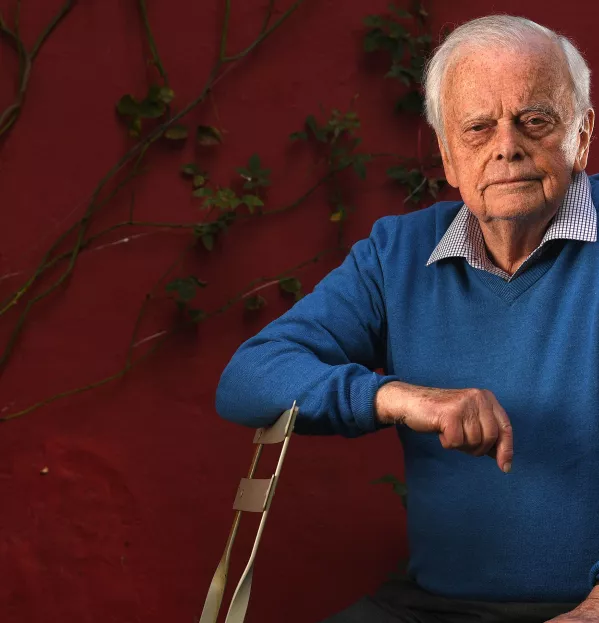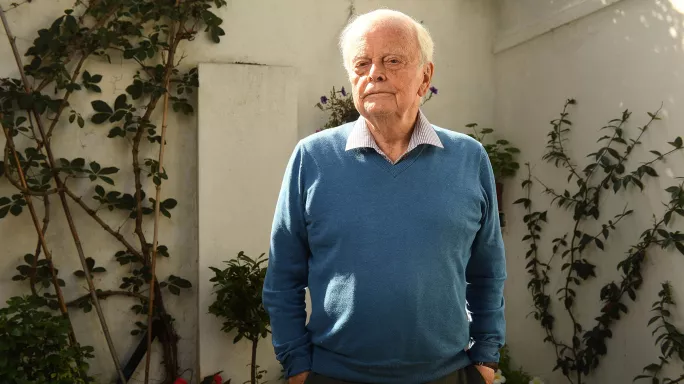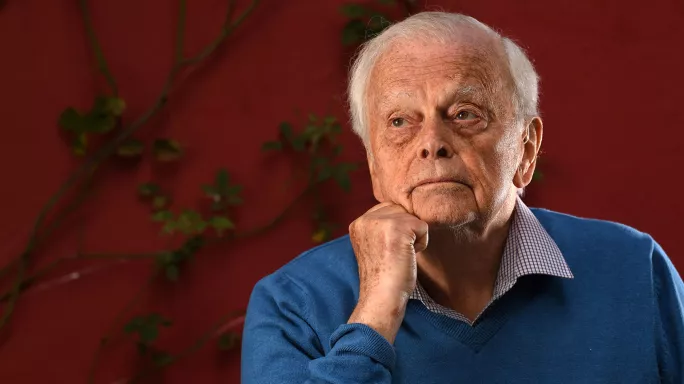
- Home
- Teaching & Learning
- General
- Michael Young: What we’ve got wrong about knowledge and curriculum
Michael Young: What we’ve got wrong about knowledge and curriculum

If you’ve ever leafed through an Ofsted research review, you’ve almost certainly come across the concept of “powerful knowledge”.
In a nutshell, this refers to the knowledge and understanding that pupils would not encounter in their daily lives beyond school. It is not a list of facts, but a way of thinking that enables them to apply their knowledge - and it is in this application that its power lies.
Popularised by education researchers Michael Young and Johan Muller in 2008, powerful knowledge has since become intertwined with ideas about the “knowledge-rich” curriculum.
In recent years, Young’s work has been cited in speeches by former education minister Michael Gove and Ofsted’s chief inspector Amanda Spielman, among others.
But where did the idea of powerful knowledge come from in the first place? And how does Young himself - now emeritus professor at UCL Institute of Education - feel about the impact it has had at a school and policy level?
Tes sat down with him to find out.
More:
- Powerful knowledge: What teachers need to understand
- The next ‘big thing’ in teaching? It’s all about you
- Is a knowledge-rich curriculum really key to pupil outcomes?
Tes: You published your first book, Knowledge and Control, in the 1970s. How did you view knowledge back then?
Michael Young: I was a lecturer in sociology at the Institute of Education at the time. Back then, the focus of the discipline was on how the external structures of society shape the outcomes of schooling. I wasn’t focusing on what was happening in the school and the educational system; my teaching was more concerned with external factors such as social class.
Knowledge and Control argued that sociology should be concerned with what education was, not just with how it was distributed in terms of inequalities. My argument was critical of current policy and practice, and quite radical.
Essentially, we were saying that “education” is not a given. Our argument was about power: that those who currently run the show maintain it in their interests and want to keep it that way. We saw the curriculum as the means by which inequalities in society are reproduced.
More recently, I’ve used the idea that knowledge itself is powerful, whereas the argument in Knowledge and Control was that there is nothing special about this knowledge; it’s just the knowledge those in power happen to think is more important, what I would later call “knowledge of the powerful”.
How did your ideas about knowledge go on to change?
I visited South Africa in the 1990s, the year after Nelson Mandela was released, and did some work with the recently formed democratic movement there.
At the time, in their approach to education, they were adopting a version of the Knowledge and Control thesis: that knowledge and education were social constructs, expressions of the distribution of power in society.
The “powerful” in South Africa had been the white Afrikaners, who dominated the apartheid society, but that group was completely thrown out in the 1994 elections.
The power of the apartheid regime was removed, and many took the view that, now that power had changed, education could also change. They saw an opportunity to build something quite new and took on the idea of a democratic curriculum based on social constructivist ideas.
The teaching unions were very much behind this. Many black African teachers had felt dominated by white administrators who had spent years telling them what to do. Now, they were effectively being told, “You can build a democratic curriculum with your students, and the government is going to support you”.
‘Education and knowledge can give us the power to think and potentially act in new ways’
And was this new approach a success?
The problem was that teachers had absolutely no experience of any other kind of curriculum besides a top-down one in which they had no power. They didn’t know what to do with the freedom they were given by the new political context.
There was chaos in the schools. Students didn’t want to learn. Some continued to think of schools as places for perpetuating the revolution.
What I saw in South Africa, combined with certain critiques of my work from colleagues I respected, really shook me up. It exposed the limitations of my earlier thesis.
I came to realise that there was something wrong with a theory of the curriculum expressed only in terms of power over others. It says nothing about how education and knowledge can give us the power to think and potentially act in new ways.
There was some truth in the earlier theory, but it didn’t give an adequate account of education’s emancipatory potential. This is why I had to go back and ask some more fundamental questions.
What were those fundamental questions?
One question I asked myself was: what are schools for?
I realised that schools provide a possibility for students to access knowledge that they wouldn’t get from their everyday lives, whether at home or in the workplace.
That is why schools exist; schools certainly do reproduce inequalities in society, but they also are a unique context for people to have access to knowledge.
This brought me to the idea that knowledge could be both social and real. It’s social, because knowledge can only be produced by groups of people in history, and it’s real in the sense that it constitutes the shared understandings of society.
To say that it’s social doesn’t mean that it’s relativist, and to say that it’s real doesn’t deny the fact that it’s provisional and is continuously up for debate.

Is this how you came to the idea of powerful knowledge?
Exactly. The idea that knowledge is social began with what I would call “knowledge of the powerful”, while the idea that knowledge is real is expressed in the term “powerful knowledge”.
Essentially, if your approach to building a curriculum starts with knowledge of the powerful (the knowledge that the people in power think is important), you end up focused on power, and not on the curriculum. That was where we were back in the days of Knowledge and Control.
Only later did I grasp that the powers of knowledge were for all, not just those with power. I came to argue, in collaboration with my colleague Johan Muller, that if you want a sociology of education that speaks to the possibility of changing education, one that speaks to what teachers are actually doing in classrooms, then we need to focus on the powers of knowledge in each subject.
Knowledge is real, and each field has disciplinary knowledge; this is just as true of the arts as it is of the sciences.
What does the concept of ‘powerful’ disciplinary knowledge bring to curriculum design?
Powerful knowledge brings an emphasis on the stipulation of knowledge in the curriculum. If it’s not stipulated, there’s no chance of kids getting access to it.
So, that’s one thing, but another thing is the fact that the knowledge in a curriculum must be accessed by people who come without any prior knowledge, or at least with knowledge that’s very different.
[Muller and I] didn’t say much about that at all, but it’s crucial. It’s all well and good talking about a knowledge-rich curriculum, but what we need is a theory of educational knowledge, which is knowledge that students can acquire.
The curriculum is not just a body of knowledge; it’s a group of communities we must encourage our students to join. That’s how we have to look at it.
‘Making powerful knowledge the principle of your curriculum is not just an educational issue; it’s a resource issue and therefore a political issue’
In recent years, your ideas have often been cited by proponents of the ‘knowledge-rich’ curriculum. How did that come about?
After the 2010 UK election, Tim Oates, who works for Cambridge Assessment, chaired a commission that produced a new curriculum framework, funded and commissioned by the DfE [Department for Education]. Tim acknowledged my work in his report. The new framework was then taken up by the coalition government in their first national curriculum of 2014.
But it soon became apparent to me that there was confusion between the political, traditionalist view of knowledge and the educational emphasis on the fact that knowledge must be part of anybody’s education.
The problem with knowledge, in the end, is a problem of being clear about its realism, without forgetting about how access to it is distributed.
As certain people became increasingly excited by the idea of powerful knowledge, these two questions became blurred.
I found this troubling, because “powerful knowledge” is a good phrase, nothing more.
Do you think the concept of powerful knowledge has become misaligned with a certain political agenda, then?
Yes. I met David Lambert around the time that the 2014 national curriculum was being drawn up and we decided that we needed to try and write a book, which became Knowledge and the Future School: curriculum and social justice.
What we wanted to do was to make a clear argument to say that the knowledge question was as much a question for the left as for the right.
It had come to be seen as entirely for the right - as something regressive, in that it was about tradition and preserving elites. We wanted to say “no”: if you combine it with a different politics, it’s an important part of that politics.
I don’t think we succeeded, though. A lot of work had already been done by the right-wing think tanks around promoting the importance of knowledge, but they did not address the issue of what’s involved if you want it to be a democratic policy. They were more interested in preserving traditions than whether knowledge was being made more accessible.
This, then, became the dominant account, and people on the left collapsed me and my work with Gove’s traditionalist view of knowledge and the elitist curriculum based on that of the public school.
The left - in so far as it thinks about knowledge at all, which is not much - tends to be very critical of theories that attempt to deal with these questions, none of which have straightforward answers.

Overall, are you pleased with the reception your ideas about powerful knowledge have had?
Yes and no. Looking back, “powerful knowledge” was more of a slogan than a concept: a kind of linguistic device whose purpose was to remind teachers that knowledge matters.
Since then, it’s been taken up and spread around the place as if it was some brilliant new idea, but really it’s just a signpost towards some very difficult questions that everyone needs to think hard about.
Bearing all of that in mind, what advice would you give to teachers interested in applying your ideas about powerful knowledge to how they interpret their school’s curriculum?
I would remind them of a point [Russian psychologist] Lev Vygotsky made: that acquiring knowledge in school has to be the voluntary act of a learner. You can’t actually teach anybody anything; they have to learn it. You can help them, but they’ve got to have that desire to know.
If you haven’t encouraged students to engage in the process of acquiring knowledge, which is a very difficult process, then all you get is memorisation and reproduction in tests.
I think this is why a lot of kids actually lose the desire to know during their time at school, whereas if we somehow found a way of enabling kids to discover that desire, which is inherent in all of them, schooling would be quite different. It would be a lovely thing to be a teacher, and not a struggle for much of the time. That’s been quite a revealing thought to me.
The current interest in the curriculum overlooks this point. It’s so concerned with saying, “Have we got the knowledge?” that it forgets to ask, “How is the knowledge being acquired?”
‘The curriculum is not just a body of knowledge; it’s a group of communities we must encourage our students to join’
What would be a better approach to thinking about the curriculum?
We have to keep open the idea of a curriculum that is pedagogic, in the sense of it being accessible knowledge. It’s difficult to access, but accessible nonetheless.
We also need a concept of pedagogy that is curriculum or knowledge-based, and that’s difficult to articulate as well.
The strand of learning theory that comes in from cognitive psychology always describes learning as some kind of autonomous process. It doesn’t matter what you’re learning; our brains can learn anything. It’s a process model - whereas, I think it’s very different depending on what you want your students to learn.
What should the role of politicians and policymakers be in all of this?
Making powerful knowledge the principle of your curriculum is not just an educational issue; it’s a resource issue and therefore a political issue. But I would say that politicians need to draw more on educational professionals.
The government’s role is really to set direction and vision, rather than trying to implement anything directly. The idea that the secretary of state should say what’s on the curriculum of history or English, for example, is, I think, absurd. It wouldn’t happen in almost any other country; what’s on the curriculum would be decided by professional communities in continuous engagement with the public.
Michael Young was speaking to George Duoblys, who is school improvement lead for science at Greenshaw Learning Trust in south-west London
You need a Tes subscription to read this article
Subscribe now to read this article and get other subscriber-only content:
- Unlimited access to all Tes magazine content
- Exclusive subscriber-only stories
- Award-winning email newsletters
- Unlimited access to all Tes magazine content
- Exclusive subscriber-only stories
- Award-winning email newsletters
You need a subscription to read this article
Subscribe now to read this article and get other subscriber-only content, including:
- Unlimited access to all Tes magazine content
- Exclusive subscriber-only stories
- Award-winning email newsletters
- Unlimited access to all Tes magazine content
- Exclusive subscriber-only stories
- Award-winning email newsletters
topics in this article



